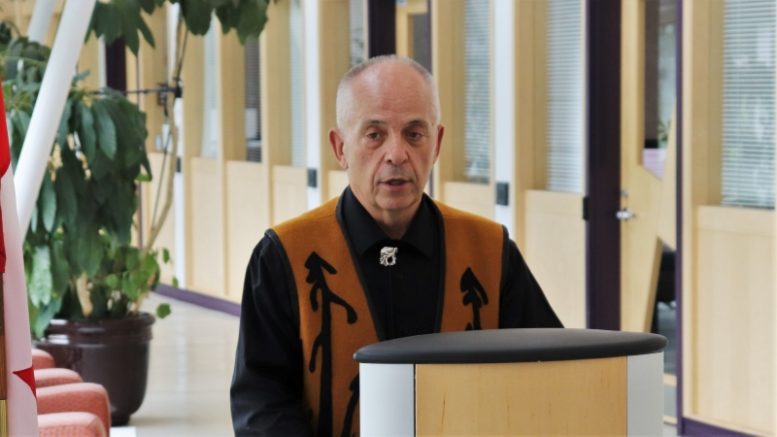A former Northwest Territories cabinet minister says the incoming legislative assembly must do a better job settling land claim agreements with Indigenous governments as well as speed up the self-government process.
However, Fort Smith businessman Michael Miltenberger says anyone who thinks working on these issues with the federal government would be more productive than the territorial government is wrong.
Miltenberger made that statement following news stories quoting former premier Stephen Kakfwi who suggested that Indigenous governments would be better served working on those outstanding issues with the Feds which they did before devolution took effect in 2014.
Devolution took powers over land and water away from Ottawa and gave them to the GNWT.
“There’s a strong wind of political discontent blowing towards Yellowknife because of all the things they are talking about – land claims, turning their backs on de-centralization…not setting up tables where Indigenous governments feel that they are meaningful participants in the operation of the territory,” Miltenberger said in an interview with CKLB. “I’m not talking about the intergovernmental council that meets once a year and is an advisory board. They still unfortunately exclude the Indigenous governments like the Deh Cho that didn’t sign the devolution agreement even though devolution is the law of the land.”
Miltenberger says he’s heard about the discontent from the chiefs and the grand chiefs during his work with the Dene Nation.
He adds that he doesn’t disagree with them but he does disagree with anyone who says let’s just kick out the territorial government and run back to “the warm embrace of the federal government.”
Miltenberger says Indigenous people are still working with the Feds on Day Schools, Residential Schools, land claims and the fact the Indian Act still exists.
He points out that the number of court cases still going on between the federal government and Indigenous people over Indigenous rights are an example of Ottawa’s failure to treat reconciliation seriously.
“The federal government does a terrible job of delivering services at the community level. Look at the number of boil water advisories (on reserves). Look at the lack of funding. We worked hard for decades to get control of decision-making in the North as Northerners. There are lots of problems here but we want the right like Canadians in provinces to be able to make our decisions and solve our problems. We can fix them ourselves, including land claims.”
However, Miltenberger says the current NWT government has a “cave dweller, adversarial mentality going back to the 1800s” when it comes to dealing with Indigenous governments.
“The Indian Act, the marginalization of Indigenous people, the taking away of the land, the taking away of rights – all things from a different day and time,” Miltenberger. “This is the 2st century and it’s time to live up to the devolution agreement and its promise.”
Miltenberger says there are too may senior bureaucrats in the territorial government that view Indigenous governments as the enemy and people they do not want to work with.
He says stronger GNWT partnerships with Indigenous governments and organizations must be formed.
He says the decades it has taken to get self-government agreements done with Indigenous governments is another example of a lack of will and faith on the part of the GNWT.
Miltenberger adds the bureaucrats’ attitude that if we give something to Indigenous people then we must be losing something has to come to an end.
Miltenberger says he has cautious optimism that the culture could change depending upon who gets elected to the 20th NWT Legislative Assembly.
Miltenberger was first elected MLA in 1995 and became a cabinet minister in 1999.
He was defeated in the 2015 election in the Fort Smith-area riding of Thebacha.
John has been in the broadcast journalism industry since the 1980s. He has been a reporter in Yellowknife since 2012 and joined CKLB in January of 2018.
John covers the crime and court beat as well as reporting on other areas including politics, business, entertainment and sports.
He won seven national community newspaper awards while he was a journalist with Northern News Services Limited (NNSL).
John worked in Ontario before coming North including stints as a TV sportscaster in Peterborough and senior news writer for CBC and CTV in downtown Toronto.









